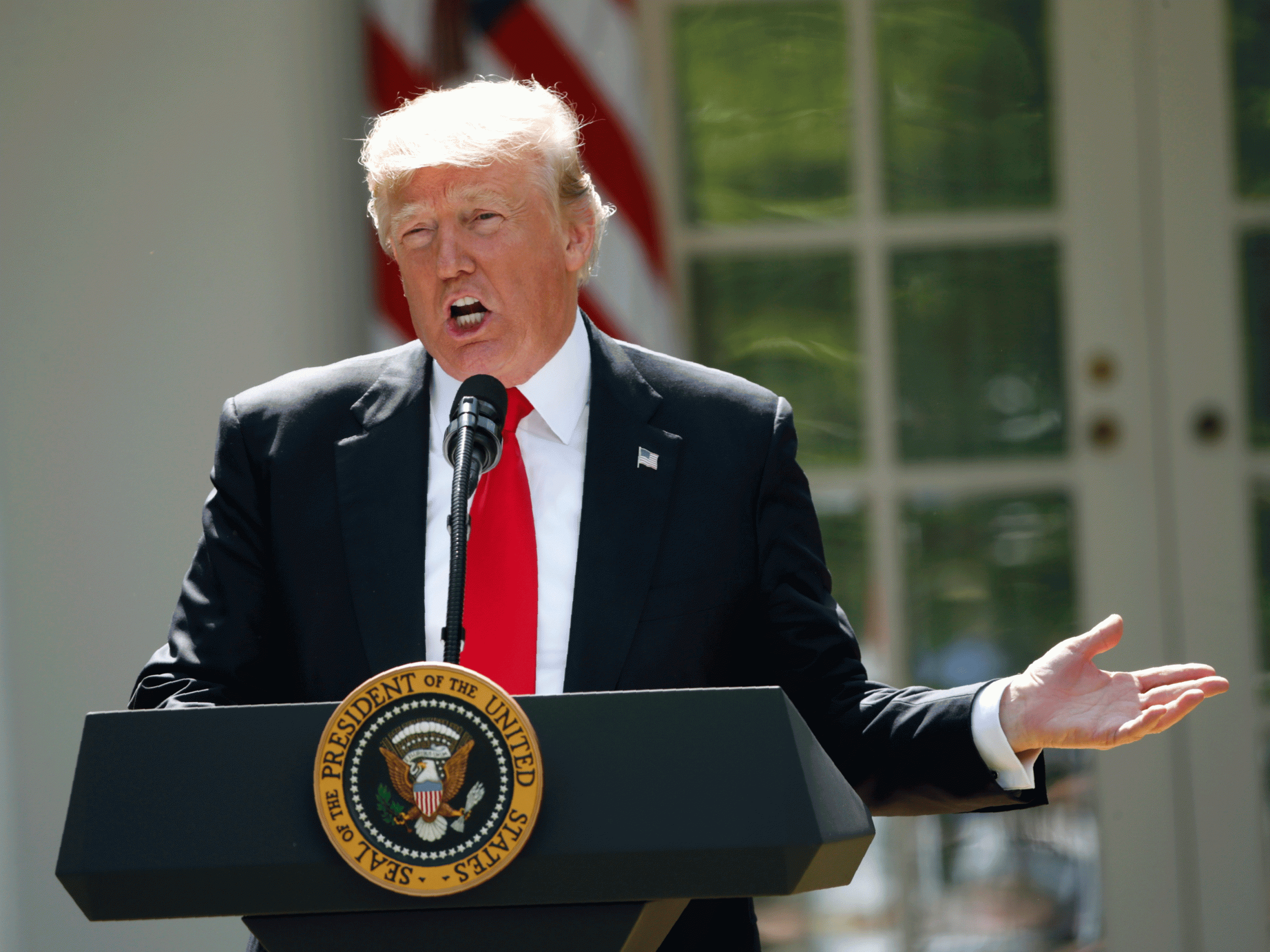Why markets will tackle climate change, with or without Donald Trump
The US solar industry now employs nearly twice as many workers as oil, gas and coal combined

The outrage surrounding Donald Trump’s decision to withdraw from the 2015 Paris Agreement is understandable. But no matter how much the President huffs and puffs, his views will go the way of some of the previous victims of climate change: the dinosaurs.
Even China, whose rapid industrialisation has been built on a hunger for extractive raw materials and heavily polluting power stations, has begun to adapt. When Xi Jinping visited Davos at the beginning of the year, he sought to present the nation as a reformed global citizen, placing tremendous emphasis on China’s role in a green future.
We should not dismiss the measures and targets which the Paris Agreement looked to put in place. Even without the United States, the impact which they have will be pronounced. But the hard truth which the Trump administration will one day face up to is that they have already become marginalised and the future of action to limit the effects of climate change will now come, not from governments, but from the private sector.
With this in mind, Trump’s attempts to frame the decision to pull out of the Paris Agreement in any sort of economic terms seem flawed. The upside to his decision will be another “big win for the Donald”, appealing to his political core. However, on his favourite subject – jobs – the statistics are against him, as the US solar industry now employs nearly twice as many workers as oil, gas and coal combined.
In the UK, despite changes in regulation and cuts to subsidies, renewable energy continues to flourish. Solar energy is providing record percentages of power to the National Grid, while on stormier days, North Sea wind farms can now produce over 100 per cent of the energy used in Scotland. Meanwhile, attempts to develop a nascent shale gas industry have so far floundered, despite significant government support.
The past decade has seen a green energy revolution across the globe. Over 18 per cent of the world’s power is now produced from renewable sources and this proportion looks set to rise in the coming years and decades. The growth in renewables has improved the efficiency of these cleaner forms of power, with costs per unit declining and set to fall further still.
This growth is being reflected in the value of investments, as markets are already being reshaped as new players enter traditional industries, backed by capital rich private investors seeking sustainable long-term returns. Tesla, the electric vehicle maker founded in 2003, now has a market capitalisation over 20 per cent higher than Ford, despite pulling in revenues of just $7bn (£5.4bn) in 2016. Ford’s revenues were over $150bn last year.
It is also telling that the oil price fell after Trump’s announcement, as did shares in Peabody, the largest coal company in the US. In theory oil and coal should have been prime beneficiaries of Trump’s decision.
Political impetus to act on climate change, through projects like the Paris Agreement, remains relevant. It would undoubtedly have been better if Trump had swallowed his pride and backed away from this decision. Yet when it comes to the future of our climate, it will be the thousands of businesses, millions of jobs and billions of consumers who decide, through the choices, purchases and investments they make, what that future will be. Even the leader of the free world is impotent against that tidal wave.
Mike Fox is the head of sustainable investments at Royal London Asset Management
Join our commenting forum
Join thought-provoking conversations, follow other Independent readers and see their replies
0Comments